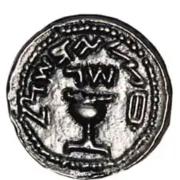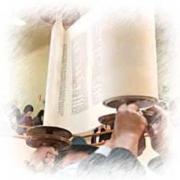100, 20 and 7 years - why does the Torah break down the years of the life of Sarah Imeinu?
וַיִּהְיוּ֙ חַיֵּ֣י שָׂרָ֔ה מֵאָ֥ה שָׁנָ֛ה וְעֶשְׂרִ֥ים שָׁנָ֖ה וְשֶׁ֣בַע שָׁנִ֑ים שְׁנֵ֖י חַיֵּ֥י שָׂרָֽה׃ - Sarah’s lifetime—the span of Sarah’s life—came to one hundred years, and twenty years, and seven years. (Bereshit 23:1)
Here, Torah broke down the years of her life into the stages of 100, 20 & 7 years. This is what Rashi says on it: ויהיו חיי שרה מאה שנה ועשרים שנה ושבע שנים And the life of Sarah was 127 years (literally, 100 years, 20 years and 7 years) — The reason the word שנה is written at every term is to tell you that each term must be explained by itself as a complete number: at the age of one hundred she was as a woman of twenty as regards sin — for just as at the age of twenty one may regard her as having never sinned, since she had not then reached the age when she was subject to punishment, so, too, when she was one hundred years old she was sinless — and when she was twenty she was as beautiful as when she was seven (Bereshit Rabbah 58:1).
But my question is, why would Torah break down her years, and what is Torah hinting at?
The Yalkut Shimoni (16:78) says that Avraham Avinu was 25 years old and Sarai was 15 when they married, which makes them a barren couple for 75 years.
When Avraham Avinu and Sarah Imeinu got married they brought into their marriage their past experiences. On top of it, during their life together, Avraham Avinu went through many more trials in his life: being childless for 75 years and everything that comes with it, problems in the community, being singled out in his hometown for his monotheistic ideas, being thrown into a fiery furnace, and many other tribulations in his path of life.
And during all of this, one thing we know for sure: Sarah Imeinu was there for him and with him all that time, feeling his pain and supporting him through all his trials and endeavors.
When the angels came to them in Parashat Vayera, she was there in the tent (Bereshit 18:9), working tirelessly, doing the work to support Avraham's endeavor of hosting guests and spreading the faith of One G-d.
When Hashem told him to leave his hometown in Parashat Lech Lecha, she travelled with him from place to place for many months, enduring much suffering along the way.
When she gave Hagar to Avraham Avinu as a maidservant to have a child through her, and Hagar got pregnant for the first time, Sarah Imeinu suffered much from Hagar later since she started shaming Sarah, because she couldn't conceive.
She was there when he was in trouble and in pain. She was there for him as he brought people back to Hashem, tirelessly doing the work that needed to be done. And she was there when he was in triumph at the birth of his son Yitzchak.
100 years—Sarah Imeinu didn't live her life—her life had a purpose, a vision; she was part of something BIG, something that drove her existence. She was like a moon reflecting Avraham Avinu's life struggles, accomplishments, and vision. So when Avraham Avinu reached the age of 100, it was her age and achievement as well; it was as if she had reached that age, since she had been with him through the good and the bad.
So what are the 20 years? Shlomo Hamelech said in the song of Eshet Chayil, צ֭וֹפִיָּה הֲלִיכ֣וֹת בֵּיתָ֑הּ - She oversees the activities of her household. When Sarah Imeinu saw the behavior of Yishmael - shooting the arrows toward Yitzchak, as a play, she foresaw this as a future problem, so she asked Avraham Avinu to send Yishmael away, thus making sure Yitzchak would be the only heir through whom the nation would be built. Avraham Avinu did so; for the next 20 years, she raised Yitzchak in the way of Torah, instilling in him the values of Torah and the idea that he would be the next patriarch to build the future of the nation.
The next 7 years were the years in which she worked on her love and full dedication to Hashem. When Yitzchak asked his father Avraham Avinu, Where's the korban that will be brought when they get to their destination? Avraham Avinu answered him that Hashem would choose the korban, and this was when Yitzchak understood that he would be the korban. It says, "Vayelchu Shnechem Yachdav" - "And the two of them walked on together" (Bereshit 22:7-8). He understood and accepted that he would be the korban that his father would bring, and he walked together with his father to his death. He was not made the korban; they brought a sheep as a korban instead (Bereshit 22:13), but since he had accepted the decision of Hashem, he was elevated to the holiest level, worthy of becoming one of the Avot.
Avraham Avinu came from the Akedah and saw that Sarah Imeinu had passed away. Torah says that he didn't mourn for long (Bereshit 23:2-3). He needed to get up and do what needed to be done. Why? Because, remember, they were on a mission - Sarah Imeinu and Avraham Avinu were a team and were together on this all along - working tirelessly day and night for years. To build the nation and ensure its future, one must claim ownership of the land. So he purchased the land, which is a Maarat HaMachpela, where Adam and Chava were already buried. Right after that, Avraham Avinu started looking for a wife for his son Yitzchak.
Avraham Avinu married Ketura and had children with her. Years later, he sent them all away to the East, thus to separate them from the future Am Yisrael and Yitzchak. Following their example, years later Rivkah Imeinu made sure that Yakov gets the beracha from his father Yitzchak Avinu, which made Yaakov Avinu the next patriarch of the nation.
The last sentence in the song Eshet Chayil, written by Shelomo HaMelech says: תְּנוּ־לָ֭הּ מִפְּרִ֣י יָדֶ֑יהָ וִיהַלְל֖וּהָ בַשְּׁעָרִ֣ים מַֽעֲשֶֽׂיהָ׃ - Extol her for the fruit of her hand, And let her works praise her in the gates. The fruit of her hands - as Rashi explains, Glory and greatness, strength, beauty and the ruling power. I would like to also add wisdom and the loyalty to be by her husband's side, to stick to the goal of building the nation, to foresee the trouble that may lay ahead, and to raise the family in the values of the Torah. This is what Sarah Imeinu accomplished and this is what she has entrusted all the women after her - to follow in her footsteps and to continue her work and the work of Avraham Avinu. That is why all men sing to their wives every Erev Shabbat: אֵֽשֶׁת־חַ֭יִל מִ֣י יִמְצָ֑א וְרָחֹ֖ק מִפְּנִינִ֣ים מִכְרָֽהּ׃- What a rare find is a capable wife! Her worth is far beyond the gemstones.
Shmuel Katanov














